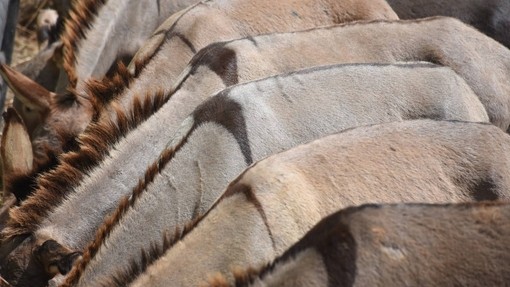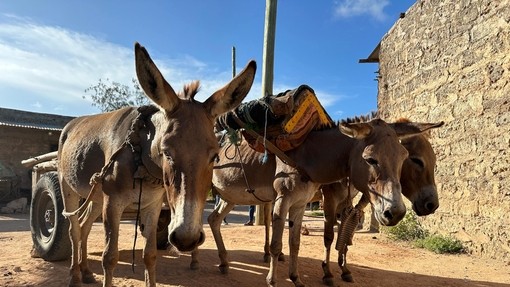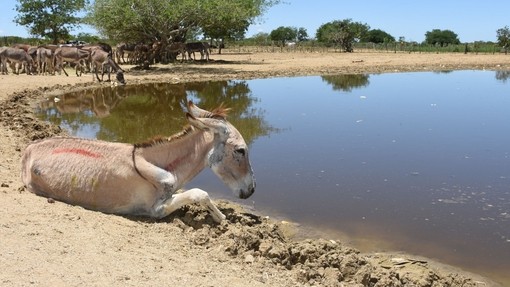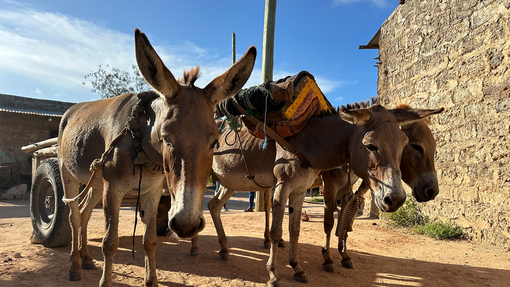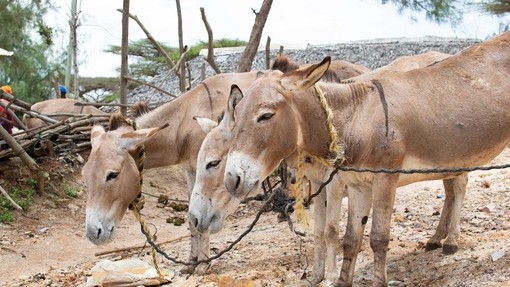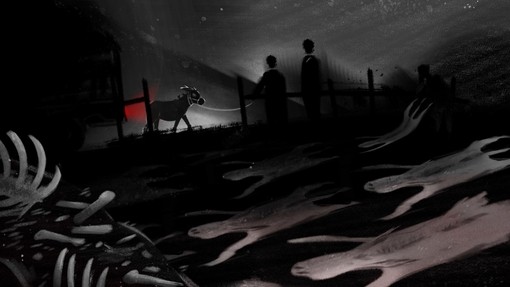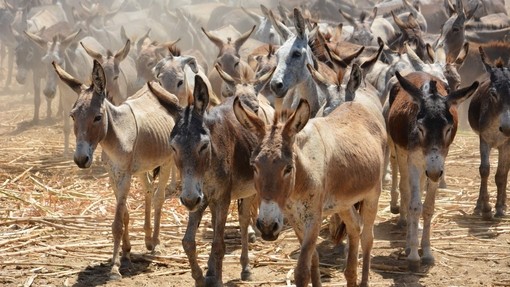
Our plans to protect the national herd from the donkey skin trade
The event, a world first, was a joint initiative by the Ethiopian Government and the world’s largest equine welfare charity, The Donkey Sanctuary. It was designed to fully discuss the diverse and complex issues surrounding farming and breeding of donkeys, but also the crucial socio-economic role that donkeys play in supporting livelihoods and gender equality in Ethiopia.
Ethiopia is home to the world’s largest population of donkeys, and has been identified as a valuable source of donkey skin supply which is used in the manufacture of the traditional Chinese medicine, ejiao. The skins are boiled to extract collagen which is the main ingredient of the product.
Moves by the ejiao industry to establish donkey slaughterhouses in Ethiopia were met with substantial public opposition and the export trade for skins has faltered.
Opening the event, Dr Sahlu Mulu, Special Adviser to the Agriculture Minister said on behalf of the Government: “The purpose of the forum, is to engage and bring together all key stakeholders at an early stage in discussions in order to fully understand and identify all potential opportunities and challenges the trade presents in order to encourage a full and thorough analysis of political, economic, social, cultural and environmental impacts.
“And integral to these discussions is the need for an assurance that our national donkey herd is protected. The livelihoods and the futures of the poorest Ethiopians will be threatened if we do not meet this goal.”
Dr Sahlu Mulu also warned of placing too much expectation on the economic benefits of a trade in donkeys before having undertaken detailed research into its advantages and disadvantages, saying “…there is no evidence that large numbers of donkeys exist as a potential supply chain in our country. We must avoid building hope and expectations about seams of gold that exist only in the minds of their prospectors.”
Mike Baker, CEO, The Donkey Sanctuary said: “There is a cultural connection that exists between Ethiopia’s donkeys and its people, which is not found anywhere else in the world. This has to be preserved and cannot be put at risk by the uncertain financial expectations of the donkey skin trade. Donkeys provide a lifeline of independent and income for millions of Ethiopians and we cannot afford to put that at risk at any price.”
Expert speakers included Dr Getachew Mulugeta, who warned the donkey skin trade is a ticking time bomb if immediate action is not taken to ensure effective biosecurity measures.
The seminar took place on the day that a new investigation revealed shocking evidence of an illegal cross-border trade in donkeys between Ethiopia and Kenya. The findings, published by Oxpeckers Investigative Environmental Journalism and funded by The Donkey Sanctuary, revealed that donkeys are being poached in Ethiopia before enduring a 250km journey in an arid environment, through difficult terrain with no water and scarce feeding, to the Moyale cross-border cities.
They are then reportedly trucked to the slaughterhouses in Naivasha and Baringo. Enduring a 2/3-day journey by lorry to donkey slaughterhouses in Naivasha in Kenya.
A donkey smuggler told Oxpeckers: “There is a higher demand for hides now, which coincided with the increased unwillingness to sell among Kenyan donkey owners. That has forced the slaughterhouse managers in Naivasha and Baringo to buy donkeys from Kenyan and Ethiopian cross-border traders.
“Every day trucks arrive from the Moyale border with donkeys from Ethiopia going to Naivasha. Nowadays there are more Ethiopian than Kenyan donkeys being slaughtered here.”
The full report can be viewed on the Oxpeckers website.
The Ethiopian Government have committed to forming a multi stakeholder technical working group in order to fully understand and identify all potential opportunities and challenges the trade presents in order to encourage a full and thorough analysis of political, economic, social, cultural and environmental impacts.
Your support makes stories like this possible
Share this page
Tags
- News


